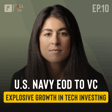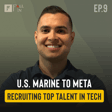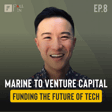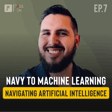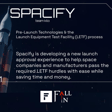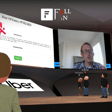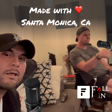
Fall In's Space Hackathon Winners: Team Lima's Asteroid Collision Education Project
In this podcast, we sit down with Team Lima, the winners of Fall In's space-themed hackathon. Led by Dan "The Man," the team discusses their innovative asteroid collision education project, which aims to raise public awareness about the dangers of potential asteroid impacts.
Discover the fascinating journey behind their award-winning solution, from ideation to execution, and learn about the technologies they used to bring their project to life. The team also shares their hackathon experience and offers advice for future participants.
Don't miss this opportunity to hear from the brilliant minds behind Team Lima's project. Tune in now and learn how they're making a difference in educating the public about the importance of asteroid collision awareness.
GitHub repo: https://github.com/Team-Deep-Impact/Deep-Impact
